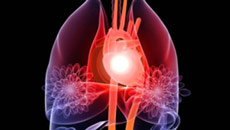Although the obesity rate calculated from body mass index (BMI) figures has not gone up significantly, the waistlines of US adults, especially that of women, continue to expand, says a study.
The prevalence of abdominal obesity and average waist circumference increased among US adults from 1999 to 2012, the study noted.
Waist circumference is a simple measure of total and intra-abdominal body fat.
Prevalence of obesity calculated from body mass index (BMI) figures did not change significantly from 2003-2004 to 2011-2012.
"In contrast, our analyses using data from the same surveys indicate that the prevalence of abdominal obesity is still increasing," said study leader Earl Ford from the US Center for Disease Control and Prevention.
"The reasons for increase in waist circumference in excess of what would be expected from changes in BMI remain speculative, but several factors, including sleep deprivation, endocrine disruptors and certain medications have been proposed as potential explanations," the researchers noted.
For the study, the researchers used data from seven two-year cycles of the National Health and Nutrition Examination Survey (NHANES) starting with 1999-2000 and concluding with 2011-2012.
Abdominal obesity was defined as a waist circumference greater than 40.2 inches (102 cm) in men and greater than 34.6 inches (88 cm) in women.
Data from 32,816 men and non-pregnant women aged 20 years or older was analysed.
The overall age-adjusted average waist circumference increased progressively and significantly, from 37.6 inches in 1999-2000 to 38.8 inches in 2011-2012.
A more significant increase occurred in women (1.5 inches) than in men (0.8 inch).
The overall age-adjusted prevalence of abdominal obesity increased significantly from 46.4 percent in 1999-2000 to 54.2 percent in 2011-2012.
The study appeared in the journal JAMA (Journal of the American Medical Association).





